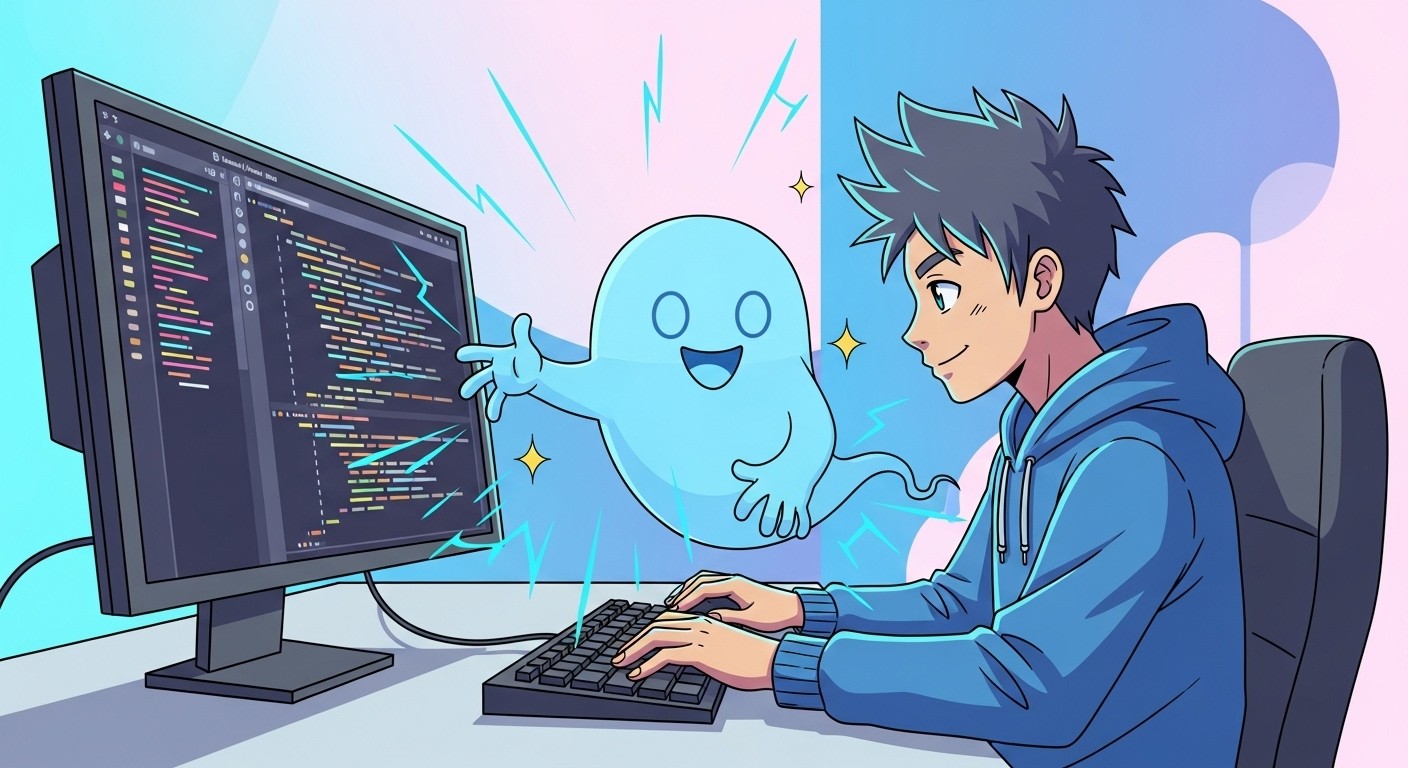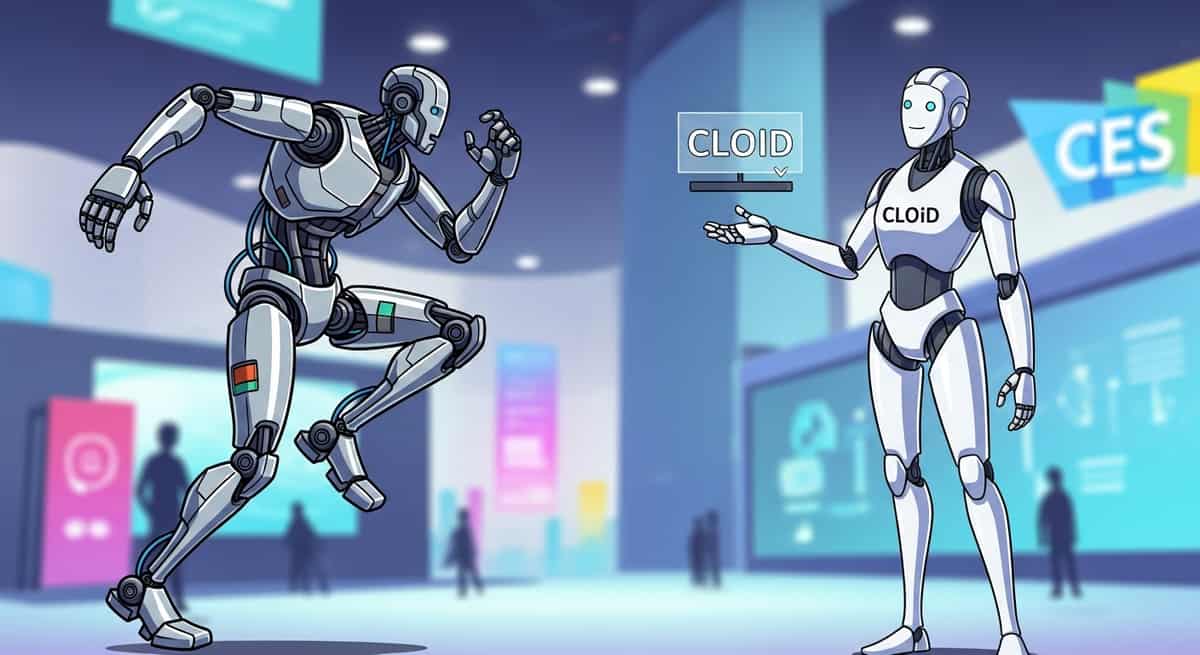Microsoft Absorbs GitHub Into CoreAI After CEO Steps Down

Microsoft has officially ended GitHub's seven-year run as an independent subsidiary, announcing that the world's largest code repository will be folded directly into the company's CoreAI division following CEO Thomas Dohmke's departure. The move marks a fundamental shift in how Microsoft approaches developer tools and signals the tech giant's commitment to AI-powered programming environments.
Dohmke announced his resignation on August 11, 2025, stating he will remain through the end of the year to oversee the transition before pursuing new entrepreneurial ventures. Unlike typical corporate leadership changes, Microsoft has chosen not to replace him with another CEO, instead distributing GitHub's leadership across multiple Microsoft executives within the CoreAI organization.
Link to section: The End of GitHub's IndependenceThe End of GitHub's Independence
When Microsoft acquired GitHub for $7.5 billion in 2018, the deal faced significant skepticism from the open-source community. Microsoft, historically viewed as antagonistic toward open-source software, promised that GitHub would "operate independently to provide an open platform for all developers in all industries." For seven years, this promise largely held true, with GitHub maintaining its own leadership structure, company culture, and strategic direction.
The integration into CoreAI represents a dramatic departure from this hands-off approach. Jay Parikh, who heads Microsoft's CoreAI division, will now oversee GitHub's strategic direction through a distributed leadership model. Julia Liuson, head of Microsoft's developer division, will manage GitHub's revenue, engineering, and support functions, while GitHub's chief product officer Mario Rodriguez will report directly to Microsoft AI platform VP Asha Sharma.
This structural change reflects Microsoft's evolving priorities in an AI-driven development landscape. GitHub has become far more than a code repository since the launch of GitHub Copilot, Microsoft's AI-powered coding assistant. The platform now serves as a testing ground for Microsoft's most advanced AI capabilities, making it a critical component of the company's broader AI strategy.
Link to section: Dohmke's Legacy and DepartureDohmke's Legacy and Departure
Thomas Dohmke's tenure as CEO, which began in 2021, coincided with GitHub's transformation into an AI-first platform. Under his leadership, GitHub grew from approximately 56 million users to over 150 million developers, while the platform's repository count exceeded 1 billion. The launch and rapid adoption of GitHub Copilot became one of Microsoft's most successful AI products, reportedly growing into a larger business than all of GitHub was worth at the time of acquisition.
Dohmke, who originally joined Microsoft when the company acquired his startup Xamarin, expressed pride in GitHub's achievements during his tenure. In his departure announcement, he highlighted the platform's role in democratizing AI-powered development tools and its position at the forefront of software innovation. His decision to leave stems from a desire to return to his entrepreneurial roots, though he hinted that future projects might compete directly with existing developer platforms.
The timing of Dohmke's departure is particularly significant given the competitive pressures facing GitHub. New AI-powered coding environments like Cursor have gained substantial traction among developers, while Google's renewed focus on developer tools poses a direct challenge to Microsoft's dominance in the space.

Link to section: Strategic Implications for MicrosoftStrategic Implications for Microsoft
The integration of GitHub into CoreAI reflects Microsoft's broader strategy of centralizing AI development across all its products and services. CoreAI, formed in January 2025, serves as the company's primary AI research and development hub, responsible for creating the foundational technologies that power Microsoft's suite of AI assistants and tools.
By bringing GitHub under direct CoreAI oversight, Microsoft can more tightly coordinate the development of AI-powered programming tools with its broader AI research initiatives. This integration could accelerate the development of more sophisticated coding assistants, enable deeper integration with Microsoft's cloud services, and create opportunities for cross-platform AI experiences that span from development environments to productivity suites.
The move also positions Microsoft to better compete with emerging threats in the AI-powered development space. The intensifying competition in AI coding tools has made GitHub's continued innovation critical to Microsoft's overall developer strategy. By centralizing control, Microsoft can ensure that GitHub's development priorities align perfectly with its broader competitive objectives.
Link to section: Impact on the Developer CommunityImpact on the Developer Community
For GitHub's 150 million users, the integration into CoreAI raises both opportunities and concerns. On the positive side, deeper Microsoft integration could lead to more robust AI features, better performance, and stronger integration with other development tools. GitHub Copilot, which currently serves 20 million users, could see significant enhancements through access to Microsoft's latest AI research and computational resources.
However, the loss of independence also raises questions about GitHub's commitment to platform neutrality. The open-source community has historically valued GitHub's role as a relatively neutral platform that supports developers regardless of their choice of operating system, cloud provider, or development tools. Tighter Microsoft integration could potentially bias the platform toward Microsoft's ecosystem, though the company has not announced any changes to GitHub's open platform philosophy.
The developer community's response has been mixed, with some expressing optimism about enhanced AI capabilities while others worry about potential lock-in effects. The success of GitHub's integration will largely depend on Microsoft's ability to maintain the platform's inclusive culture while leveraging the benefits of deeper organizational alignment.
Link to section: Competitive Landscape and Market ResponseCompetitive Landscape and Market Response
GitHub's integration into CoreAI comes at a time of unprecedented competition in the developer tools space. Startups like Cursor have gained significant traction by offering AI-first development environments that challenge GitHub's traditional workflow model. Meanwhile, Google has been aggressive in recruiting top talent for its own AI-powered development initiatives.
The timing suggests Microsoft recognizes the need for more agile decision-making and resource allocation in this rapidly evolving market. By eliminating the corporate boundaries between GitHub and Microsoft's AI research teams, the company can respond more quickly to competitive threats and market opportunities.
Industry analysts view the move as a natural evolution of Microsoft's AI strategy, though some question whether the integration might stifle the entrepreneurial culture that has made GitHub attractive to developers. The success of similar integrations, such as LinkedIn's incorporation into Microsoft's productivity suite, provides a template for maintaining platform value while achieving strategic alignment.
Link to section: Technical Integration ChallengesTechnical Integration Challenges
Merging GitHub into CoreAI presents significant technical and cultural challenges. GitHub operates on a fundamentally different technology stack from Microsoft's core products, using Ruby on Rails for its web platform and maintaining its own data centers and content delivery networks. Integrating these systems with Microsoft's Azure-based infrastructure will require careful planning to avoid service disruptions.
The cultural integration may prove even more complex. GitHub has maintained a distinctly different corporate culture from Microsoft, emphasizing open-source values, remote-first operations, and developer-centric decision-making. Preserving these cultural elements while aligning with Microsoft's broader objectives will require careful management during the transition period.
Microsoft's track record with acquisitions provides mixed guidance. While LinkedIn has largely maintained its independence and culture, other acquisitions like Skype have struggled with integration challenges. The success of GitHub's integration will depend on Microsoft's ability to learn from past experiences and adapt its approach to GitHub's unique position in the developer ecosystem.
Link to section: Future Implications for Developer ToolsFuture Implications for Developer Tools
The GitHub integration signals a broader industry trend toward consolidation in developer tools and AI-powered programming environments. As AI capabilities become increasingly central to software development, companies with the resources to invest in large-scale AI research and development may have significant advantages over smaller competitors.
This consolidation could lead to more sophisticated and capable development tools, but it also raises questions about market competition and developer choice. If Microsoft, Google, and other tech giants dominate AI-powered development tools, smaller companies and independent developers may find it increasingly difficult to compete.
The integration also highlights the growing importance of AI in software development workflows. GitHub Copilot's success has demonstrated that developers are willing to adopt AI tools that genuinely improve productivity, creating opportunities for further innovation in areas like automated testing, code review, and project management.
Link to section: Economic Impact and Market ValuationEconomic Impact and Market Valuation
Microsoft's decision to integrate GitHub more tightly into its operations reflects the platform's growing economic importance. GitHub Copilot alone has become a billion-dollar business, with enterprise adoption growing 75% quarter-over-quarter according to Microsoft's recent earnings reports. The platform serves 90% of Fortune 100 companies and has become a critical component of Microsoft's developer relations strategy.
The integration could unlock additional value by enabling cross-selling opportunities with Microsoft's cloud services and productivity tools. Developers who rely on GitHub for code management might be more likely to adopt Azure for deployment, Office 365 for documentation, or Teams for collaboration, creating synergies that justify the loss of GitHub's independence.
From a market perspective, the integration reduces the likelihood that GitHub could ever be spun off or sold to a competitor. This provides Microsoft with a permanent strategic asset in the developer tools market while eliminating a potential point of vulnerability in its competitive strategy.
Link to section: Regulatory and Antitrust ConsiderationsRegulatory and Antitrust Considerations
The GitHub integration occurs against the backdrop of increased regulatory scrutiny of major technology companies. While the move involves a subsidiary that Microsoft already owns, the elimination of GitHub's independence could attract attention from antitrust regulators concerned about market concentration in developer tools.
GitHub's dominance in code hosting, combined with Microsoft's broader presence in developer tools through Visual Studio Code, Azure DevOps, and other products, creates a significant concentration of market power. Regulators may examine whether this integration reduces competition or creates barriers for competing developer platforms.
However, the presence of strong competitors like GitLab, Bitbucket, and emerging AI-powered alternatives may mitigate regulatory concerns. The rapid pace of innovation in developer tools also suggests that market dominance may be less durable than in other technology sectors, potentially reducing the risk of regulatory intervention.
Link to section: Looking ForwardLooking Forward
The integration of GitHub into Microsoft's CoreAI division represents a significant milestone in the evolution of software development tools. As AI capabilities become increasingly central to programming workflows, the organizational alignment between GitHub and Microsoft's AI research teams could accelerate innovation and create new categories of developer experiences.
For Microsoft, the integration provides an opportunity to fully leverage one of its most valuable acquisitions while positioning the company for the next phase of AI-powered development. The success of this strategy will depend on the company's ability to maintain GitHub's developer-friendly culture while unlocking the benefits of deeper organizational integration.
The broader technology industry will be watching closely to see how this integration unfolds. If successful, it could serve as a model for how large technology companies can integrate AI-focused acquisitions. If challenges emerge, it may provide cautionary lessons about the difficulties of merging distinct corporate cultures and technical platforms.
As Thomas Dohmke prepares for his departure and GitHub begins its integration into CoreAI, the developer community faces a period of uncertainty and opportunity. The changes ahead will ultimately determine whether GitHub can maintain its position as the world's leading developer platform while evolving to meet the challenges of an AI-driven future.

